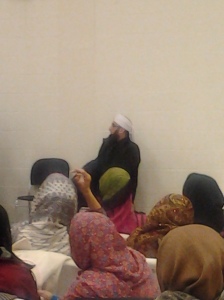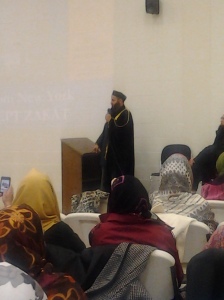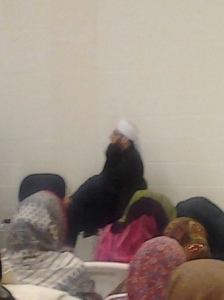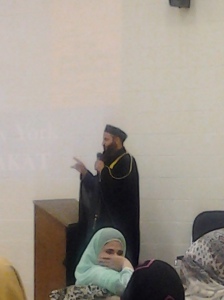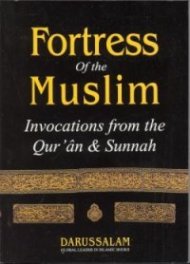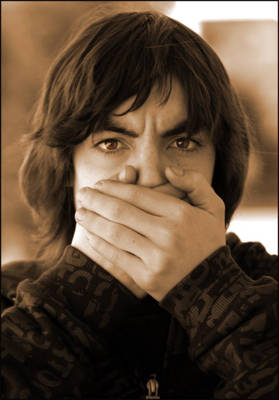
Bismillahi Ar Rahmani Ar Rahim
Assalamu Alaikum wa Rahmatullahi wa Barakatuh,
InshAllah I hope everyone had a restful weekend and a good week so far. InshAllah nothing stressful is happening in your life at the moment, but if it is, May Allah correct your affairs for you and make things easier, Ameen.
So, where to begin?
Sometimes, randomly, you’ll have an experience that makes your understanding of Islam a little bit sharper. It can be as simple as tripping over a rock and scraping your knee, in which you remember that, SubhanAllah, Allah has removed a sin from you. Or it can be as harrowing as watching someone die, and thinking about your own mortality and grave in the hands of Allah, SubhanAllah.
Mine was on the lighter end of things and it was just something someone said that struck some understanding within me. Last week, I was sitting with my family in the living room, day dreaming a bit about who-knows-what. My youngest sister came into the room and had some food in her hand which she wanted to feed my father.
She said to him, “Papa, try this,”
Papa: “No, I don’t want to.”
Sister: “Just close your eyes and open your mouth.”
Papa: “No! I don’t want it.”
Sister: “Come on! Just close your eyes and open your mouth and eat it!”
And my father relented.
The phrase “just close your eyes and open your mouth” stayed with me, echoing in my head a little. And when I got my hands around what it meant to me, I said aloud, “Ah, isn’t that interesting?”
It’s interesting that the dunya (the world) and Shaitan (the devil) want you to close your eyes and open your mouth and consume the world. Consume the pleasures and temptations. Blindly indulge in excess and chase after transient things, such as wealth for the sake of monetary gain and luxury for the sake of comfort. Greed, temptation, and desire trip our feet and have us fearing poverty when we should be fearing Allah.
Allah teaches us through His perfect words to do the exact opposite. Open your eyes. Shut your mouth. Look at what you are being fed in this world before it becomes your undoing. Before the glittering lies and deceptive attractions poison you into thinking that the world can offer you anything important or valuable. It is not the world that determines your fate. Allah determines your fate according to what you DO in the world, for His sake.
I thank Allah for giving me the kind of family I have, Alhamdulillah. Everyday they remind me how blessed I am and how important it is to give back, give back, give back, for the sake of Allah. My father could have forced me to go to medical school. Instead he let me find my own way, do what my interests were in. While I’m sure he wishes I would have picked a career path that could have afforded me more financial security, I’m beginning to see the fruits of struggling on the path of Islam. In choosing a career path that makes my finances look a little blurry, my faith in Allah has increased, SubhanAllah. I do not want to become a person that depends on fat paychecks, nor makes a career the most important thing in life.
So, is this naivety? Or is this Emaan?
I can see both arguments. But of course, for me, it is Emaan.
Does that mean, however, that I should not be ambitious and not do whatever I can to support my future family? Does that mean I should get a part time job and have no aspirations?
That ALL depends on my intentions.
Anything I do, I must do to the best of my ability for the sake of Allah. Being lazy is disliked in basically all religions, Islam being no exception. Below, a hadith narrated by At-Tirmidhi reminds us that being prepared and organized is important. Carelessness and laziness have no place in Islam.
“One day Prophet Muhammad (peace be upon him) noticed a Bedouin leaving his camel without tying it and he asked the Bedouin, “Why don’t you tie down your camel?” The Bedouin answered, “I put my trust in Allah.” The Prophet then said, “Tie your camel first, then put your trust in Allah””
Whatever I have been given by Allah, I must use it to for the sake of Allah. Before I graduated college, I used to surf through the web and look at the salaries of certain job titles. I lost sight of my personal strengths and focused entirely on what a certain title could give me, instead of focusing on my strengths and relying on Allah to help me in finding the right career, whatever it might be.
According to At-Tirmidhi:
Do not own an estate and thus begin to desire the world.
According to Ahmad:
Beware of living sumptuously, for the [true] servants of Allah do not live sumptuously.
According to Provisions for the Seeker, the Tirmidhi hadith “warns against occupations that make one heedless of his obligations to Allah” (pg 74). Therefore, as Muslims, we should not chase after careers that might veer us from the path of Islam. That is why choosing a career simply because of a large salary is dangerous, because it sets our sights on the world and can remove our dependency on Allah. It is Allah that provides. Not a paycheck.
The Ahmad hadith is pretty straight-forward. As Muslims, we should not live in extravagance. The greatest Muslim that ever lived, Prophet Muhammad (SAW), was an extremely modest man. He kept very little and was entirely focused on his comforts being in the akhira (afterlife) rather than in the world, SubhanAllah.
A beautiful hadith that exemplifies the Prophet (SAW)’s belief and faith in Allah is one in which Umar (RA) weeps at the sight of the Prophet (SAW) living in very modest conditions:
…When I reached the story of Um Salama, Allah’s Apostle smiled while he was lying on a mat made of palm tree leaves with nothing between him and the mat. Underneath his head there was a leather pillow stuffed with palm fibres, and leaves of a saut tree were piled at his feet, and above his head hung a few water skins. On seeing the marks of the mat imprinted on his side, I wept. He said.’ ‘Why are you weeping?’ I replied, “O Allah’s Apostle! Caesar and Khosrau are leading the life (i.e. Luxurious life) while you, Allah’s Apostle though you are, is living in destitute”. The Prophet then replied. ‘Won’t you be satisfied that they enjoy this world and we the Hereafter?’ “
-narrated: Ibn ‘Abbas, Bukhari.
Whether I choose to be a doctor or a librarian or cook, I just pray that, inshAllah, Allah keeps me on the path of Islam. I pray that whatever career is in my future, whatever salary that Allah has already determined for me, I pray that, inshAllah, I am able to use both career and salary for the sake of Allah, and that I have done everything in my power, used all the resources Allah has given me to do my best, inshAllah. InshAllah, everything I work for is used to support my family for the sake of Allah.
What is belief without practice? What is faith without a test? Allah has given us the world and filled it to the brim with tests for us. Do we desire immediate satisfactions, transient pleasures, blind consumption? Do we close our eyes, open our mouths, and consume and live in blissful ignorance?
Or Do we believe in Allah and the promise of Jannah and a warning of Hell? Do we look at what we’re being fed? What is our intention in everything we do? Is it for Allah, or is it for worldly gain? How often do we think of Allah during the quickly passing days of our lives?
May Allah give us steadfastness and give us more opportunity to gain His reward, and correct our affairs for us and guide us in the right way always, Ameen.
If I’ve made any sort of mistake or have cited something incorrectly, please let me know. Or if you have anything you want to add, please comment below! Let me know how I’m doing, what you want to see more or less of, I’m totally open for suggestions, criticisms, etc!
Sources:
Provisions for the Seeker. Muhammad Ashiq ILahi Al-Bulandshehri & Abdur-Rahman ibn Yusuf. Reprint 2009. White Thread Press. Page 74 & 76.
http://www.theonlyquran.com/hadith/Sahih-Bukhari/?chapter=60&hadith=431&pagesize=15
http://msanational.org/six-steps-to-improving-muslim-life-on-campus/


